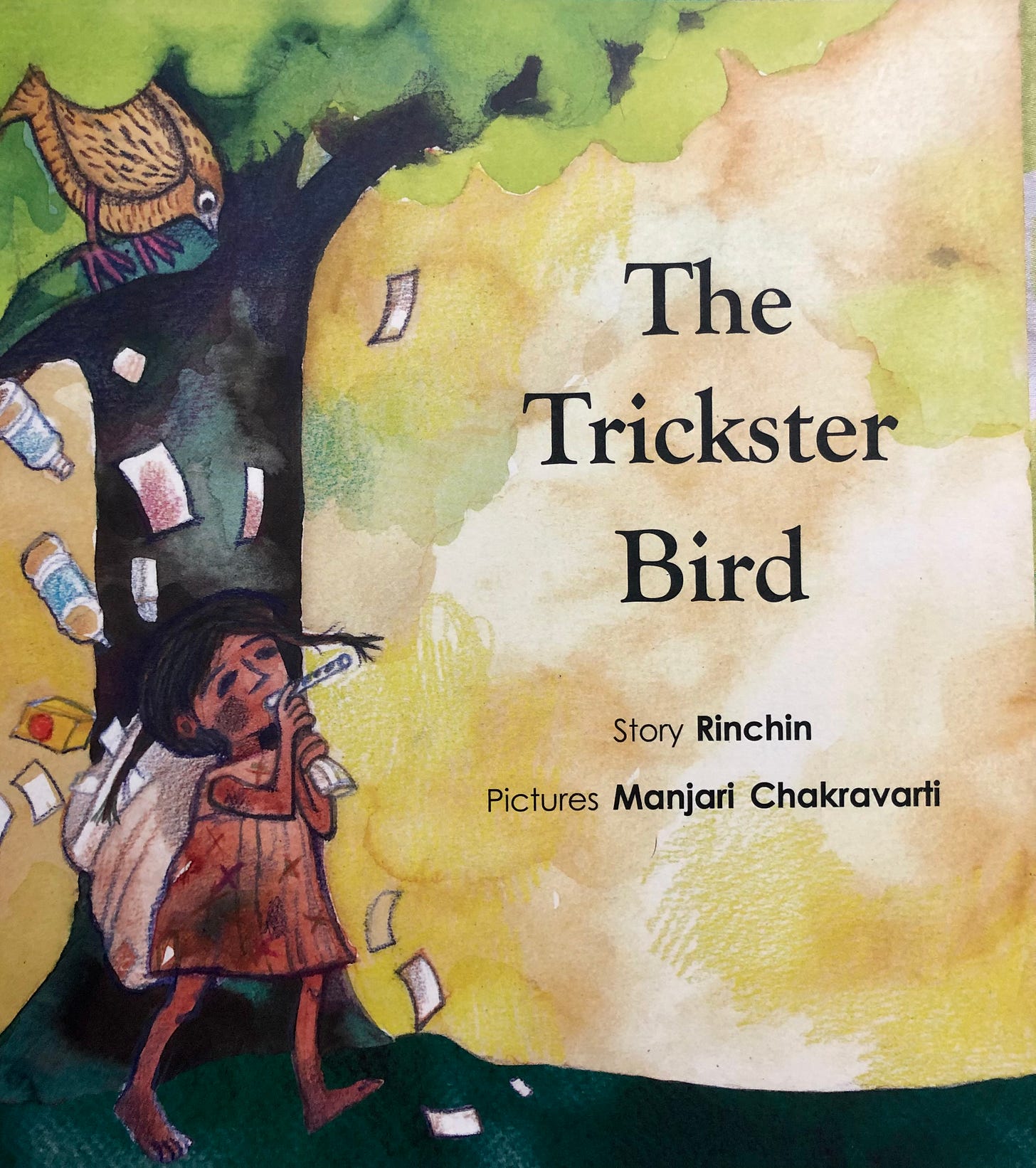“The Trickster Bird” by Rinchin and illustrated by Manjari Chakravarti. Published by Tulika. A story drawing attention to the plight of the Paardhi tribals of Madhya Pradesh through little Renchu and her grandmother.
Renchu was a ragpicker. She was running a fever and had not gone for work one day. She lived in a jhuggi (a makeshift house). Only Daadi was at home as her mother and sisters had already gone to picking waste from all over the city. She asked Daadi to tell her a story. Daadi was sorting all the waste that everyone had brought in the day before into different piles. Daadi started off with a story about Renchu’s grandfather being fooled by a partridge in the forest.
Renchu was excited and all ears for the teetaro-bater story. Teetaro-bater means partridge-quail. The meat of both these birds is considered to be very tasty. Her grandfather Khilaan Singh used to be a bird trapper. He was one of the best. He would use a whistle to lure the birds into his trap. But now hunting had been banned by the government as the birds were endangered and there was no use for the whistle. How did Khilaan Singh get fooled by a Teetar? What was unusual about the bird? Did Renchu find comfort by Daadi’s story? Read the book to find out.
Daadi’s stories are never narrated in a straightforward manner. She keeps flitting in and out of the story. In this process, we see two worlds. One is of a time when the Paardhis used to live near the jungle and trap birds for the Begum’s parties. The other is of their present day when they have been forced to move into cities only to lead a life of ragpickers. The contrast is too stark! They still bear the stigma of being classified as a ‘criminal’ community long ago.
My seven year old found the story to be insightful. The book creates awareness on the topic of conservation and the reality of human animal conflict. Solving for conservation has to come along with solving for livelihood of people and that is what makes it so challenging. The book is part of the “Wordbird” series by Tulika where some of the regional words used are explained with the help of birds giving the story a local touch. The book is apt for children aged 6+. Thank you Vidya Mani of Funky Rainbow for recommending this book!
Where to buy from?
The publishers Tulika books here.
An independent indie bookstore, Funky Rainbow, from where I buy many of my books.





